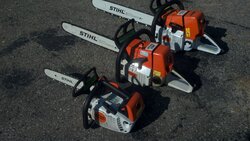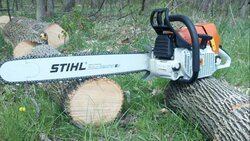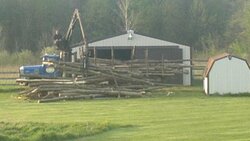Not saying you are wrong, but I have two Stihl 041AV Supers and two 015's that I have been running myself for well over a decade, doing a TON of tree work on the side, and never ever had a fouled plug from the oil I run in them. I run my mix a little rich (around 35-40:1) because of the junk ethanol in the gas. They are all 30 to 40 year old saws, and I've only rebuilt them due to seals/electrical problems, the cylinders/pistons were fine in them (and they were well-used machines). I have seen several blown up modern saws in the past year that were using SYNTHETIC mix, I just don't trust running that stuff with pump gas, esp. at the 50:1 that saw manufacturers recommend. AvGas, that would be fine with the synthetic, lets keep in mind that the alcohol in E10 does NOT allow the oil to suspend in the gas as would AvGas. Wait until the only choice for you to use is E15. That stuff will ruin your chainsaw and other two cycle engines, mark my word. Anyway, thanks for the tutorial on oils. I'll stick to what works for me, for now.







 !!
!!